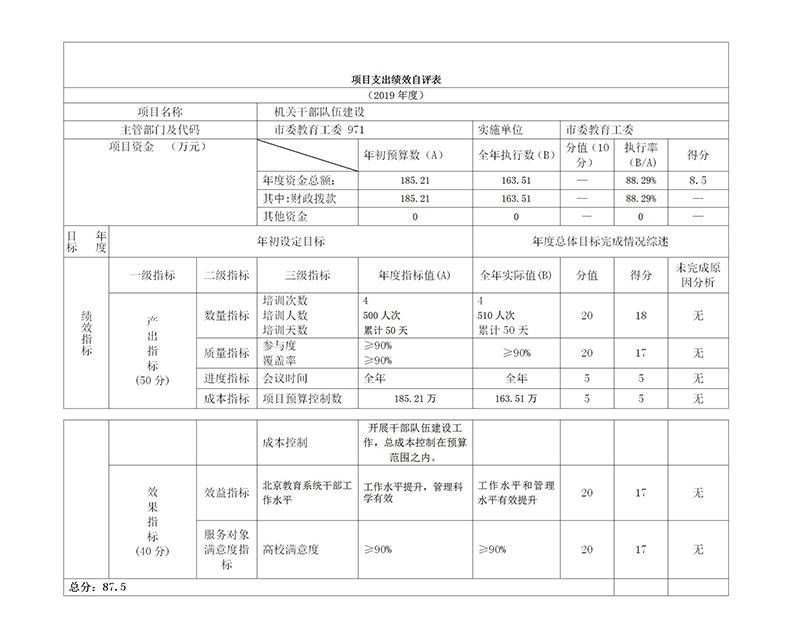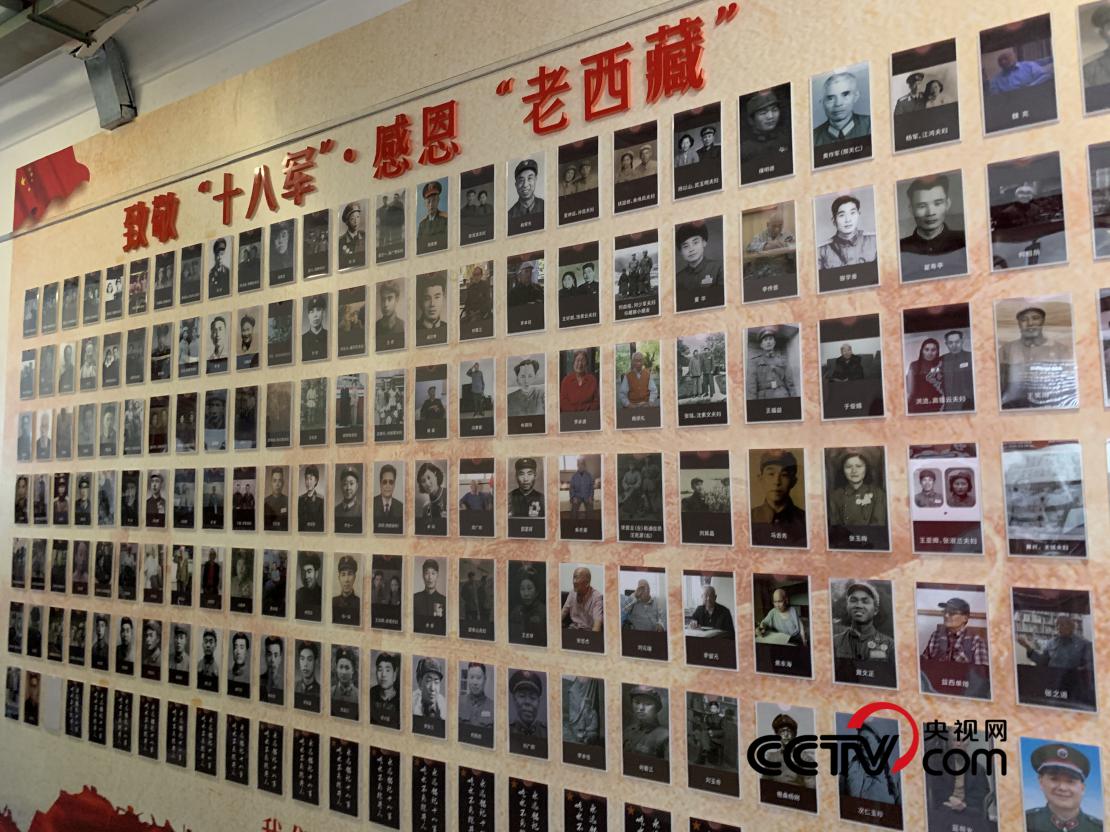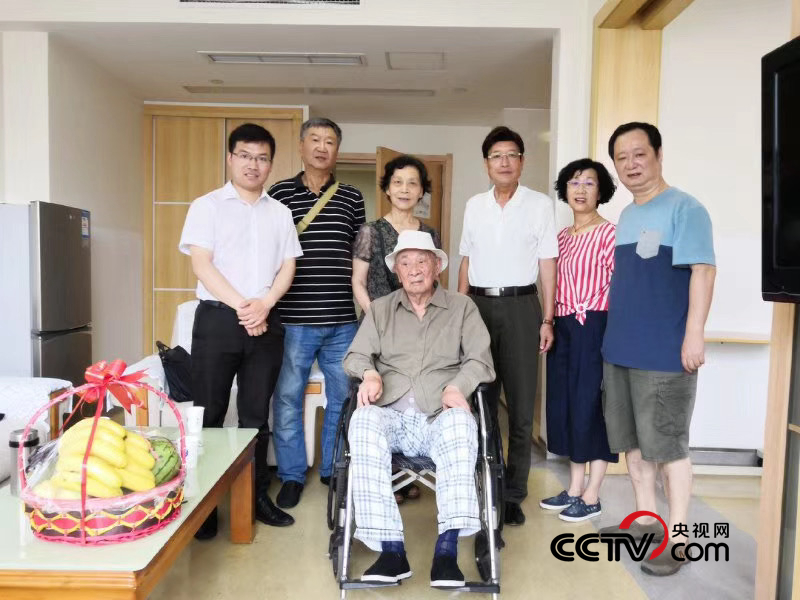China Net Beijing November 15 th This morning, the Beijing Federation of Industry and Commerce released the list of "Top 100 Private Enterprises in Beijing in 2019", "Top 100 Scientific and Technological Innovations of Private Enterprises in Beijing in 2019", "Top 100 Cultural Industries of Private Enterprises in Beijing in 2019" and "Top 100 Social Responsibility of Private Enterprises in Beijing in 2019".
The full list is as follows:
List of Top 100 Private Enterprises in Beijing in 2019
1.JD.COM Group
2. Legend Holdings Limited by Share Ltd
3. Gome Holding Group Co., Ltd
4. Xiaomi Communication Technology Co., Ltd.
5. Taikang Insurance Group Limited by Share Ltd.
6. Beijing Jianlong Heavy Industry Group Co., Ltd
7. Baidu Company
8. Beijing Sankuai Technology Co., Ltd.
9. Tianan Life Insurance Company Limited
10. Wumart Technology Group Co., Ltd.
11. Beijing Yuntong Guorong Investment Group Co., Ltd
12. Ruiganglian Group Co., Ltd.
13. Dihai Investment Holding Group Co., Ltd.
14. Dickson Technology Group Co., Ltd.
15. Beijing Lianjia Real Estate Agency Co., Ltd.
16. Beijing Suning.cn Sales Co., Ltd.
17 Beijing Blue Cursor Data Technology Co., Ltd.
18. Dongzhao Changtai Group Limited
19. Beijing iQiyi Technology Co., Ltd.
20. Beijing Dabei Agricultural Technology Group Co., Ltd.
21. Beijing Silian Venture Chemical Group Co., Ltd.
22. Beijing Xuesisi Education Technology Co., Ltd.
23. Jianghe Creation Group Co., Ltd.
24 Minsheng Life Insurance Co., Ltd.
25. WANDA CINEMAS Limited by Share Ltd.
26. Beijing Oriental Yuhong Waterproof Technology Co., Ltd.
27. Digital China Software Co. Ltd.
28 China Qinghua Energy Group Co., Ltd.
29. Zhongxin Tourism Group Co., Ltd.
30 Beijing Liandong Investment (Group) Co., Ltd.
31 Beijing Bishuiyuan Technology Co., Ltd.
32 Beijing Dangdang Information Technology Co., Ltd.
33 Huayang Lianzhong Digital Technology Co., Ltd.
34. Beijing Tomorrow Investment Co., Ltd
35 Beijing Yonghui Supermarket Co., Ltd.
36 Beijing Weimeng Chuangke Network Technology Co., Ltd.
37. Beijing Tasly Medicine Co., Ltd.
38 Beijing Juncheng Industry Investment Group Co., Ltd.
39. Donghua Software Co., Ltd
40 Beijing Hongkun Weiye Real Estate Development Co., Ltd.
41. Origen Technology Co., Ltd.
42. iSoftStone Information Technology (Group) Co., Ltd.
43. Contemporary Energy Saving Real Estate Co., Ltd.
44 UFIDA Network Technology Co., Ltd.
45. Liard Optoelectronics Co., Ltd.
Lacarra Group.
47. Sany Heavy Industry Company Limited
48. Hongkang Life Insurance Company Limited
49 Beijing Zhongneng Haolong Investment Holding Group Co., Ltd.
50. Beijing Qianfang Technology Co., Ltd.
51. Beijing SF Express Co., Ltd
52. Lepu (Beijing) Medical Devices Co., Ltd.
53. Beijing Zhonggong Education Technology Co., Ltd.
54. Beijing Fangshan Yandong Chemical Plant
55. Beijing Guanghuan New Network Technology Co., Ltd.
56 Beijing Caesar International Travel Service Co., Ltd.
57 Beijing Jiuzhoutong Pharmaceutical Co., Ltd.
58. Beijing Natong Technology Group Co., Ltd.
59. Beijing Digital Technology Co., Ltd.
60 Beijing Huasheng Tiancheng Technology Co., Ltd.
61. Guojin Gold Company Limited
62. Beijing Jinfeng Kechuang Wind Power Equipment Co., Ltd.
63. Beijing Cheetah Mobile Technology Co., Ltd.
64 Beijing Heng Chang Litong Investment Management Co., Ltd.
65. Beijing Huaxia Jianlong Mining Technology Co., Ltd.
66. Botian Environment Group Co., Ltd
67. Beijing Jiayu Door and Window Curtain Wall Co., Ltd.
68 Jiayou International Logistics Co., Ltd.
69 Beijing Changyou Times Digital Technology Co., Ltd.
70 Beijing Pinzhong Interactive Network Marketing Technology Co., Ltd.
71. Beijing Milaiwu Network Technology Co., Ltd.
72. Ruihua Group
73. Beijing High Energy Times Environmental Technology Co., Ltd.
74. Beijing Sinosteel Information Co., Ltd.
75 Beijing Sanrenxing Digital Communication Co., Ltd.
76. Beijing Kuncang Wanwei Technology Co., Ltd.
77. Beijing Xinfangsheng Hardware & Electric Material Co., Ltd.
78 AsiaInfo Technology (China) Co., Ltd.
79. Daheng New Era Technology Co., Ltd
80. Beijing May 8th Information Technology Co., Ltd.
81 Beijing Jialin Pharmaceutical Co., Ltd.
82. Beijing Qiyuan Technology Co., Ltd.
83. Dongxu Technology Group Co., Ltd.
84 Jin Chengxin Mining Management Co., Ltd.
85 Beijing Changjiu Logistics Co., Ltd.
86. Beijing Wanxing Construction Group Co., Ltd.
87. Beijing Shengshi Xinxing Gree Trading Co., Ltd.
88 Beijing Tiancheng Tongchuang Electric Co., Ltd.
89. Centro Shixing Group Limited by Share Ltd.
90 Beijing Weichuang Times Advertising Co., Ltd.
91. Hollysys Technology Group Limited
92. Beijing Oriental Huibo Human Resources Consultant Co., Ltd.
93. Guanglianda Technology Co., Ltd.
94. Qumei Home Group Co., Ltd.
95. Boyan Technology Co., Ltd.
96. Beijing Hengan Guardian Security Service Co., Ltd.
97 Beijing Stone Century Technology Co., Ltd.
98 Beijing Rongzhilian Technology Co., Ltd.
99. Pay with You Limited
100. Competitive World (Beijing) Network Technology Co., Ltd.
List of Top 100 Scientific and Technological Innovations of Private Enterprises in Beijing in 2019
1. Baidu Company
2. Beijing Changyou Times Digital Technology Co., Ltd.
3. Beijing Sankuai Online Technology Co., Ltd.
4. Digital China Software Co., Ltd.
5. Qi Anxin Technology Group Co., Ltd.
6. JD.COM Group
7. UFIDA Network Technology Co., Ltd.
8. Guanglianda Technology Co., Ltd.
9. Xiaomi Communication Technology Co., Ltd.
10. Beijing Calorie Information Technology Co., Ltd.
11. Beijing Xuesisi Education Technology Co., Ltd.
12. Venus Information Technology Group Co., Ltd.
13. Beijing Defiance Technology Co., Ltd
14. ICT Group Limited
15. Competitive World (Beijing) Network Technology Co., Ltd.
16 Beijing Kunlun Wanwei Technology Co., Ltd.
17. Beijing Hezhong Sizhuang Technology Co., Ltd.
18. Dongfang Netpower Technology Co., Ltd.
19. Ruikangda Technology Development Co., Ltd.
20. Beijing Diandi Intelligent Technology Co., Ltd.
21. Beijing Geling Shentong Information Technology Co., Ltd.
22. Beijing Shiqiao Biopharmaceutical Co., Ltd.
23. Fengke Find a House (Beijing) Technology Co., Ltd.
24. Lepu (Beijing) Medical Devices Co., Ltd.
25. Beijing Dream World Technology Co., Ltd.
26. Online Tour (Beijing) Technology Co., Ltd.
27. Beijing Jinfeng Kechuang Wind Power Equipment Co., Ltd.
28. AsiaInfo Technology (China) Co., Ltd.
29. Beijing Zhongke Jincai Technology Co., Ltd.
30. Hollysys Technology Group Limited
31. Donghua Software Co., Ltd
32 Beijing Suntech Online Education Technology Co., Ltd.
33 Beijing Dongtu Technology Co., Ltd.
34. Beijing Lange Electronic Commerce Co., Ltd.
35. Ai Qianjin (Beijing) Information Technology Co., Ltd.
36 Beijing Yuxin Technology Group Co., Ltd.
Lacarra Group.
38. Beijing Xinlei Energy Technology Co., Ltd.
39. Cross-border Cloud (Beijing) Network Technology Co., Ltd.
40. Beijing Bank-Enterprise Integration Technology Development Co., Ltd.
41. Beijing Fanzizi Gene Technology Co., Ltd.
42 Beijing Rongzhilian Technology Co., Ltd.
43. Blueport Online (Beijing) Technology Co., Ltd.
44. Beijing Milaiwu Network Technology Co., Ltd.
45. Vision Power Information Technology Co., Ltd.
46 Beijing Minhai Biotechnology Co., Ltd.
47. Liard Optoelectronics Co., Ltd.
48. Shutaishen (Beijing) Biopharmaceutical Co., Ltd.
49 Beijing Dabei Agricultural Science and Technology Group Co., Ltd.
50. Beijing Lianjia Real Estate Agency Co., Ltd.
51. Jianghe Creation Group Co., Ltd.
52. Beijing Zhifei Green Bamboo Biopharmaceutical Co., Ltd.
53 Yingu Pharmaceutical Co., Ltd.
54 Beijing Jiaxun Feihong Electric Co., Ltd.
55. Beijing Const Instrument Technology Co., Ltd.
56 Beijing Jinyunshan Network Technology Co., Ltd.
57. Daheng New Era Technology Co., Ltd.
58 Beijing Jianlong Heavy Industry Group Co., Ltd.
59. Beijing Fuyuan Pharmaceutical Co., Ltd.
60. Beijing Shuangqi Century Technology Co., Ltd.
61. Beijing Greenweidi Technology Co., Ltd.
62. Boyan Technology Co., Ltd.
63. Beijing Digital Technology Co., Ltd.
64. Beijing Digital Video Software Technology Development Co., Ltd.
65 Beijing Tiancheng Tongchuang Electric Co., Ltd.
66 Beijing Natong Technology Group Co., Ltd.
67. Ganli Pharmaceutical Co., Ltd
68. Beijing High Energy Times Environmental Technology Co., Ltd.
69 Beijing Yiqiao Shenzhou Technology Co., Ltd.
70. Alte Automotive Technology Co., Ltd.
71. Zhangyue Technology Co., Ltd
72. Beijing Jinhe Network Co., Ltd
73. Beijing Wan Tai Biopharmaceutical Co., Ltd.
74 Beijing Hehe Medical Diagnostic Technology Co., Ltd.
75 Beijing Kangchen Pharmaceutical Co., Ltd.
76 Huayang Lianzhong Digital Technology Co., Ltd.
77. Beijing Golden Nonghua Seed Industry Technology Co., Ltd.
78 Beijing Aidite Information Technology Co., Ltd.
79 Beijing Oriental Guoxin Technology Co., Ltd.
80 Beijing Bishuiyuan Technology Co., Ltd.
81. Beijing Shengborun High-tech Co., Ltd.
82 Beijing berry and kang Biotechnology Co., Ltd.
83 Beijing Digital Video Payment Technology Co., Ltd.
84. Beijing Power Source Technology Co., Ltd.
85 Beijing Pinchi Medical Equipment Co., Ltd.
86. Beijing Yonghang Technology Co., Ltd.
87 Beijing Jietai Tianyu Information Technology Co., Ltd.
88 Beijing huijin technology Co., Ltd.
89. Interstellar Entertainment (Beijing) Technology Co., Ltd.
90. Beijing Xinghao Pharmaceutical Co., Ltd.
91. Beijing Guanghuan New Network Technology Co., Ltd.
92. Beijing Tianshen Interactive Technology Co., Ltd.
93. Beijing North Information Technology Co., Ltd.
94. Beijing Lideheng Environmental Engineering Co., Ltd.
95. Beijing Fangsheng Industry Co., Ltd
96. Tianmai Juyuan (Beijing) Technology Co., Ltd.
97. Beijing Xuedilong Technology Co., Ltd.
98. Beijing Oriental Yuhong Waterproof Technology Co., Ltd.
99 Beijing Yixin Yixing Automobile Technology Development Service Co., Ltd.
100 Beijing Liuhe Weiye Technology Co., Ltd.
2019 Top 100 Cultural Industries of Private Enterprises in Beijing
1. Xiaomi Communication Technology Co., Ltd.
2. Baidu Company
3. Beijing Xueersi Education Technology Co., Ltd
4. First Momo Asset Management (Beijing) Co., Ltd.
5. Beijing Blue Cursor Data Technology Co., Ltd
6. Dihai Investment Holding Group Co., Ltd.
7. UFIDA Network Technology Co., Ltd.
8. Beijing iQiyi Technology Co., Ltd.
9. Digital China Software Co., Ltd.
10. Vision Power Information Technology Co., Ltd.
11. WANDA CINEMAS Limited by Share Ltd.
12. Beijing Qianfang Technology Co., Ltd.
13 Beijing Changyou Times Digital Technology Co., Ltd.
14. Dickson Technology Group Co., Ltd.
15. Zhongxin Tourism Group Co., Ltd
16. Beijing Jinshan Cloud Network Technology Co., Ltd.
17. Guojin Gold Company Limited
18. Beijing Dangdang Information Technology Co., Ltd.
19. Beijing Digital Technology Co., Ltd.
20. Donghua Software Co., Ltd
21. Beijing Kuncang Wanwei Technology Co., Ltd.
22. Beijing Weimeng Chuangke Network Technology Co., Ltd
23. iSoftStone Information Technology (Group) Co., Ltd.
24. Beijing Huasheng Tiancheng Technology Co., Ltd.
25. Beijing Guanghuan New Network Technology Co., Ltd.
26. Beijing Zhonggong Education Technology Co., Ltd.
27. Daheng New Era Technology Co., Ltd.
28 Beijing Caesar International Travel Service Co., Ltd.
29. Beijing Cheetah Mobile Technology Co., Ltd.
30. Dongfang Netpower Technology Co., Ltd.
31 Beijing Heng Chang Litong Investment Management Co., Ltd.
32 Beijing Rongzhilian Technology Co., Ltd.
33. Beijing Sinosteel Information Co., Ltd.
34. Ruikangda Technology Development Co., Ltd.
35. Beijing Yonghang Technology Co., Ltd.
36 AsiaInfo Technology (China) Co., Ltd.
37 Beijing Sanrenxing Digital Communication Co., Ltd.
38. Beijing Milewood Network Technology Co., Ltd.
39. Beijing Zhongke Jincai Technology Co., Ltd.
40. Beijing Chinese and Foreign Celebrity Culture Technology Co., Ltd.
41 Beijing Pinzhong Interactive Network Marketing Technology Co., Ltd.
42. China Television Telegraphic Media Co., Ltd.
43. Zhangyue Technology Co., Ltd.
44 Beijing Oriental Guoxin Technology Co., Ltd.
45. Beijing Qiyuan Technology Co., Ltd.
46. Guanglianda Technology Co., Ltd
47. Beijing May 8th Information Technology Co., Ltd.
48. Boyan Technology Co., Ltd.
49. Venus Information Technology Group Co., Ltd.
50. Competitive World (Beijing) Network Technology Co., Ltd.
51. Beijing chiba jewelry Company Limited by Share Ltd.
52 Beijing Weichuang Times Advertising Co., Ltd.
53. Beijing CLP Xingfa Technology Co., Ltd.
54. yeepay Limited.
55. Beijing Wojie Culture Media Co., Ltd.
56. Beijing Oriental Huibo Human Resources Consultant Co., Ltd.
57 Beijing Heng Chang Huicai Investment Management Co., Ltd.
58 Beijing Huatu Hongyang Education and Culture Development Co., Ltd.
59 Beijing Sida Times Software Technology Co., Ltd.
60. Beijing Wangyi Media Co., Ltd.
61. Beijing Yuxin Technology Group Co., Ltd.
62. Le Element Technology (Beijing) Co., Ltd.
63. Beijing Star Network Ruijie Network Technology Co., Ltd.
64. Beijing Shenzhou Xinqiao Technology Co., Ltd.
65. Perfect World (Beijing) Software Technology Development Co., Ltd.
66 Beijing Shengtong Printing Co., Ltd.
67 Beijing Sina Internet Information Service Co., Ltd.
68 Beijing Jishi Interactive Network Marketing Technology Co., Ltd.
69 Beijing Suntech Online Education Technology Co., Ltd.
70. Beijing Shanhai Tourism Co., Ltd.
71. Beijing Times Guangying Culture Media Co., Ltd.
72 Beijing Heng Chang Huicheng Information Consulting Co., Ltd.
73 Beijing Chunqiu Yongle Culture Communication Co., Ltd.
74 Beijing Yougou Culture Development Co., Ltd.
75. Beijing Guodu Internet Technology Co., Ltd.
76 Beijing Jiaxun Feihong Electric Co., Ltd.
77 Beijing Yadea Media Co., Ltd.
78 Beijing teng letter Innovation Network Marketing Technology Co., Ltd.
79. Beijing Lange Electronic Commerce Co., Ltd.
80 Beijing Wentou Hangmei Media Co., Ltd.
81. Oriental Fashion Driving School Co., Ltd.
82. Beijing North Information Technology Co., Ltd.
83 Beijing Zifeng Culture Development Co., Ltd.
84 Beijing Kaisheng Culture Media Co., Ltd.
85 Beijing Yachang Art Printing Co., Ltd.
86. Star Entertainment (Beijing) Technology Co., Ltd.
87 Beijing Rentian Bookstore Co., Ltd.
88 Beijing Wuzhouxing International Travel Service Co., Ltd.
89. Beijing Times Lingzi Technology Co., Ltd.
90 Beijing Youbao Online Technology Co., Ltd.
91. Beijing Fengshang Century Culture Media Co., Ltd.
92. Jingyi Jinye Co., Ltd.
93. Zhongxin Sunac Capital Management Co., Ltd.
94 Beijing Guanglian Pioneer Network Technology Co., Ltd.
95 Chinese Online Digital Publishing Group Co., Ltd.
96 Beijing Jiuhe Interactive Cultural Communication Co., Ltd.
97. Ai Qianjin (Beijing) Information Technology Co., Ltd.
98. Beijing Yingkang Technology Co., Ltd.
99. Tianmai Juyuan (Beijing) Technology Co., Ltd.
100. Online Tour (Beijing) Technology Co., Ltd.
2019 Top 100 List of Social Responsibility of Private Enterprises in Beijing
1. Beijing High Energy Times Environmental Technology Co., Ltd.
2. Qi Anxin Technology Group Co., Ltd.
3. Oriental Fashion Driving School Co., Ltd.
4. Lepu (Beijing) Medical Devices Co., Ltd.
5. Beijing Natong Technology Group Co., Ltd.
6. Beijing Ainong Pension Service Co., Ltd.
7. Beijing Lange Electronic Commerce Co., Ltd.
8. Donghua Software Co., Ltd
9. Beijing Golden Nonghua Seed Industry Technology Co., Ltd.
10. Beijing Yimeng Tiandi Information Technology Co., Ltd
11. Sany Heavy Industry Company Limited
12. Lacarra Group
13 Beijing Xinfadi Agricultural and Sideline Products Wholesale Market Center
14. Beijing Kexin Printing Co., Ltd
15. Beijing Chunlingda Medical Devices Co., Ltd.
16. Perfect World (Beijing) Software Technology Development Co., Ltd.
17 Beijing Blue Cursor Data Technology Co., Ltd.
18. Beijing Aoteshur Health Products Development Co., Ltd.
19. Beijing Shanhai Tourism Co., Ltd.
20. Beijing Times Ling Yu Technology Co., Ltd.
21 Beijing Jiaxun Feihong Electric Co., Ltd.
22 Beijing Fazheng Industrial Group Co., Ltd.
23. Beijing Lideheng Environmental Engineering Co., Ltd.
24. Beijing Daxing Fa Trading Co., Ltd.
25. Xiaomi Communication Technology Co., Ltd.
26. Beijing Yachang Art Printing Drama Co., Ltd.
27. Qianyida Group Co., Ltd
JD.COM Group
29. Fanhua Construction Group Co., Ltd.
30 Beijing Fule Technology Development Co., Ltd.
31. Beijing Lianjia Real Estate Agency Co., Ltd.
32. Beijing Yuanliu Hongyuan Electronic Technology Co., Ltd.
33. Beijing Sanfu Outdoor Products Co., Ltd.
34 Beijing Hanguang Department Store Co., Ltd.
35. 91 Pioneer Technology Group Co., Ltd.
36. KPMG Huazhen Certified Public Accountants (special general partnership)
37 Beijing Tianheng Construction Group Co., Ltd.
38 Beijing Huabo Chuangke Technology Co., Ltd.
39 Beijing Sankuai Online Technology Co., Ltd.
40. Beijing Milewood Network Technology Co., Ltd.
41. Beijing Weishiyuan Food Technology Co., Ltd.
42 Beijing Changjiu Logistics Co., Ltd.
43 Beijing Kangrentang Pharmaceutical Co., Ltd.
44. Beijing May 8th Information Technology Co., Ltd.
45. Xihua Industrial Investment Group Co., Ltd.
46. Beijing SF Express Co., Ltd
47 Beijing Heng Chang Litong Investment Management Co., Ltd.
48. Beijing Hezhong Sizhuang Technology Co., Ltd.
49. Beijing Xinmin Heng Automobile Sales Co., Ltd.
50 Minsheng Life Insurance Co., Ltd.
51. Beijing Jintongyuan Construction Engineering Company
52. Lowa Technology Industry Group Co., Ltd.
53. Beijing Hongyuan Nanmen Hotpot City Co., Ltd.
54. Beijing Minhai Biotechnology Co., Ltd
55 Beijing Jialin Pharmaceutical Co., Ltd.
56 Beijing PetroChina Fangshan Yanbin Oil Sales Co., Ltd.
57. Beijing Green Sea Technology Co., Ltd.
58 Beijing Xingpai Sporting Goods Group Co., Ltd.
59. Beijing Tengxin Technology Co., Ltd
60. Zhongke Yutu Technology Co., Ltd
61. Beijing Kaida Hengye Agricultural Technology Development Co., Ltd.
62. Ai Qianjin (Beijing) Information Technology Co., Ltd.
63. Beijing Life Insurance Company Limited
64. Origen Technology Co., Ltd.
65 Beijing Kang Bei Ni Food Co., Ltd.
66 Beijing Great Wall Guard Security Co., Ltd.
67. Beijing Wanxing Construction Group Co., Ltd.
68 Beijing Ketaixingda High-tech Co., Ltd.
69. Rongweiyuan Security Service (Beijing) Co., Ltd.
70. Beijing Oriental Jiacheng Cultural Industry Development Co., Ltd.
71. Liard Optoelectronics Co., Ltd.
72. UFIDA Network Technology Co., Ltd.
73 Beijing Bishuiyuan Technology Co., Ltd.
74 Jimei Holding Group Co., Ltd.
75. Boyan Technology Co., Ltd.
76. Tianan Life Insurance Company Limited
77. Qingjingyuan (Beijing) Environmental Protection Technology Co., Ltd.
78 Chinese Online Digital Publishing Group Co., Ltd.
79 Taikang Insurance Group Co., Ltd.
80. Beijing Oriental Huibo Human Resources Consultant Co., Ltd.
81 Pathfinder Holding Group Co., Ltd.
82. Beijing Huajiang Culture Group Co., Ltd
83. Guojin Gold Company Limited
84. Beijing Kangzhu Medical Equipment Co., Ltd.
85 Beijing Jingdiao Technology Group Co., Ltd.
86. Tianjian Engineering Consulting Co. Ltd.
87. Beijing Sinosteel Information Co., Ltd.
88. Contemporary Energy Saving Real Estate Co., Ltd.
89 Beijing Shangtang Printing and Packaging Co., Ltd.
90. Digital China Software Co. Ltd.
91. Centro Shixing Group Limited by Share Ltd.
92. Qumei Home Group Co., Ltd.
93 Beijing Xueersi Education Technology Co., Ltd.
94 Beijing Kangchen Pharmaceutical Co., Ltd.
95. Beijing Tiangang Additives Co., Ltd.
96 Beijing Kaiser International Travel Service Co., Ltd.
97 Zhongke Hengyuan Technology Co., Ltd.
98 Beijing Lianfeixiang Technology Co., Ltd.
99. Beijing Shangkun Education Holding Group Co., Ltd.
100 Venus Information Technology Group Co., Ltd.
Related links:
In 2019, the list of the top 100 private enterprises in Beijing was released, and the overall strength of the top 100 private enterprises increased
2019 Beijing Top 100 Private Enterprises Announced JD.COM Lenovo Gome won the top three.

























